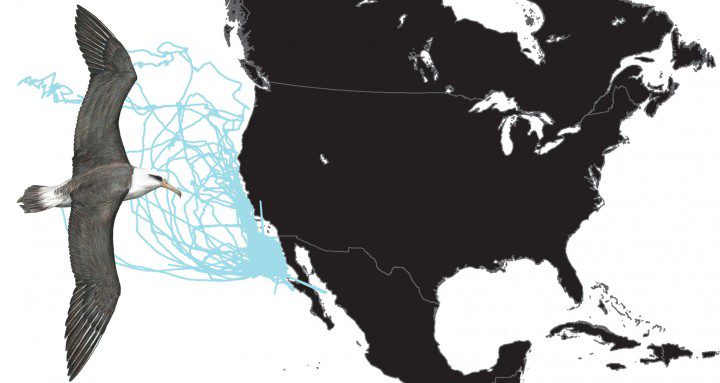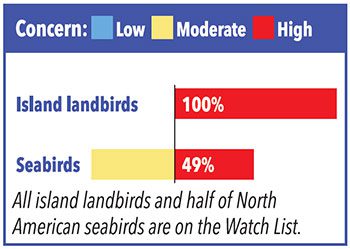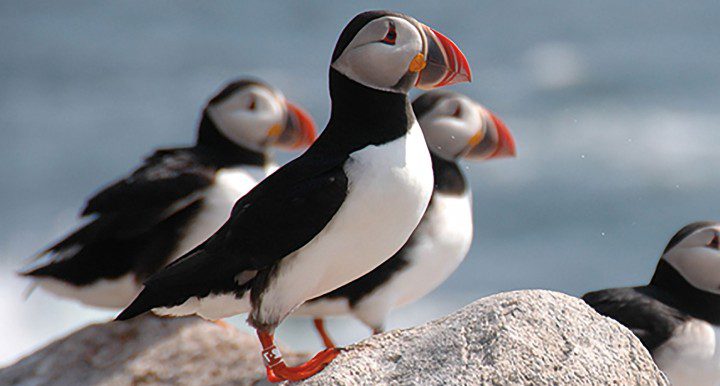Oceans

Marine Ecosystems in Crisis
The ocean waters surrounding North America contain rich marine ecosystems that support more than 150 seabird species. Unfortunately, recent research shows global seabird populations have declined nearly 70% since the 1950s, a warning that our oceans are highly stressed. Stronger international cooperation is needed to restore marine ecosystems—not just for birds, but also for the fishing industry and as a food resource for people.
Status: Seabirds globally threatened
The outlook for oceanic birds—including seabirds and a group of landbirds found only on islands off the Mexican coast—is the bleakest of any North American bird group. Small and declining seabird populations are severely threatened by invasive predators on nesting islands and accidental bycatch by commercial fishing vessels, as well as overfishing of forage fish stocks, pollution, and climate change.

Building on Success: Eradicating island invasives prevents extinctions
Islands host the nesting colonies for most North American seabirds, as well as many of the last populations of endemic landbird species. On most islands, invasive predators such as rats and cats depredate nests and pose a severe threat to bird populations. Recent international efforts have eradicated predators on 200 of the most important seabird islands in
Canadian, American, and Mexican waters. In many cases, these efforts have prevented the extinction of vulnerable bird populations. Continued comprehensive restoration of priority islands for breeding birds is needed as there are still many islands overrun by invasive species.
Take Action: Restore marine ecosystems through global cooperation
The many and varied threats to our oceans are a tangled mess that no one country can solve on its own. Governments, scientists, and industry must work together proactively toward solutions.

- Canada, the U.S., and Mexico can collaborate to reduce pressures on our richest, most biodiverse ocean ecosystems. Marine protected areas can be expanded. Multinational accords on plastics pollution can bring trinational clout to cleaning up the great floating mats of garbage that affect seabirds and other marine animals.
- Fisheries management with effective monitoring of catch is needed to ensure the sustainability of fish populations upon which seabirds depend for food. The broader adoption of best management practices for fisheries, such as the Marine Stewardship Council (MSC) guidelines, can reduce the accidental mortality (bycatch) of seabirds on fishing lines or in nets.
